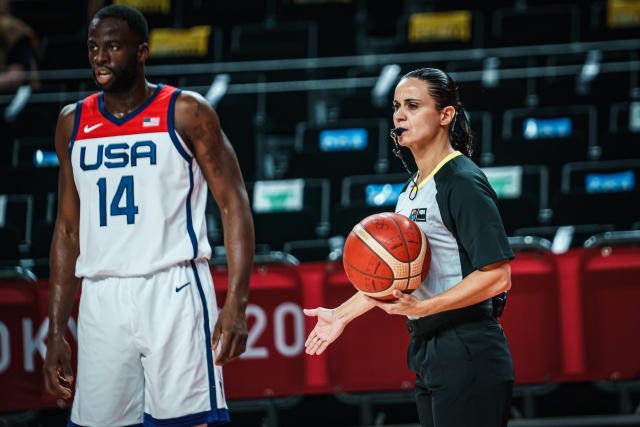Latest cycle of Game Officials Licensing meets targets with 31 percent rise in female referees
MIES (Switzerland) - FIBA met its aims in the latest Game Officials Licensing (GOL) period, with an increase in National Federations that registered candidates and a rise in the number of female officials.
MIES (Switzerland) - FIBA enjoyed a successful Game Officials Licensing (GOL) cycle, launched in October last year for the period of 2021 to 2023, with an increase in National Federations that registered candidates and a rise in the number of female officials.
The third cycle of GOL since 2017 saw an extended administrative and testing timeline, from October 2020 to May 2021, which proved useful due to the circumstances brought about by the coronavirus pandemic.
It allowed for more time for National Federations to select candidates and the submission of documents, and it extended timelines for both fitness and written tests.
One key for the success of the GOL in this cycle was the active cooperation by those involved from FIBA Referees Operations in Switzerland, to both the Regional Offices and National Federation members.
Being connected virtually played a crucial role. For example, there were online workshops with Regional Offices before the launch of the candidates' registration, and follow-up workshops with the Regional Offices and the National Federations in Africa, the Americas and Asia, respectively, during the registration.
Plenty was achieved throughout the latest cycle, with the main achievement being a jump in National Federations registering candidates. This GOL term had 171, an increase of nine on the previous cycle of 2019-21.
An impressive 83% of candidates were registered by the deadline in December 2020, and the total number of registered candidates ended up being 1,315.

Women in Basketball is a strategic priority for FIBA from 2019 to 2023, and with that in mind, there were 50% more female referee candidates submitted while 191 were licensed, a 31% rise compared to 2019-21.
The Black Licenses issued for female referees numbered 39, which is an impressive increase by almost five times from the cycle of 2019-21.
The total number of game officials that have passed all procedures, including tests, was 804 while there were 344 approved Commissioner candidates.

"The third cycle of GOL proved to be both challenging and rewarding," said FIBA's Head of Refereeing, Carl Jungebrand.
"COVID-19 certainly affected the process on all levels. We are thankful to the FIBA Regional Offices, the National Federations and the candidates for their effort, endurance and patience. The new circumstances forced us to activate our online activities and to use opportunities for communication, education and testing that we have not used in the past. We will carry this experience to the next GOL cycle as well as other projects.
"These challenges did not prevent us from reaching the key targets, namely - to include more National Federations in the GOL map and to increase the number of female game officials. Both of these goals have been reached. Now it's time to focus on continuous education and training, as well as the provision of officiating services on court."
FIBA's Referee Operations department is already preparing for the next GOL cycle as part of the strategic development of game officials.
FIBA